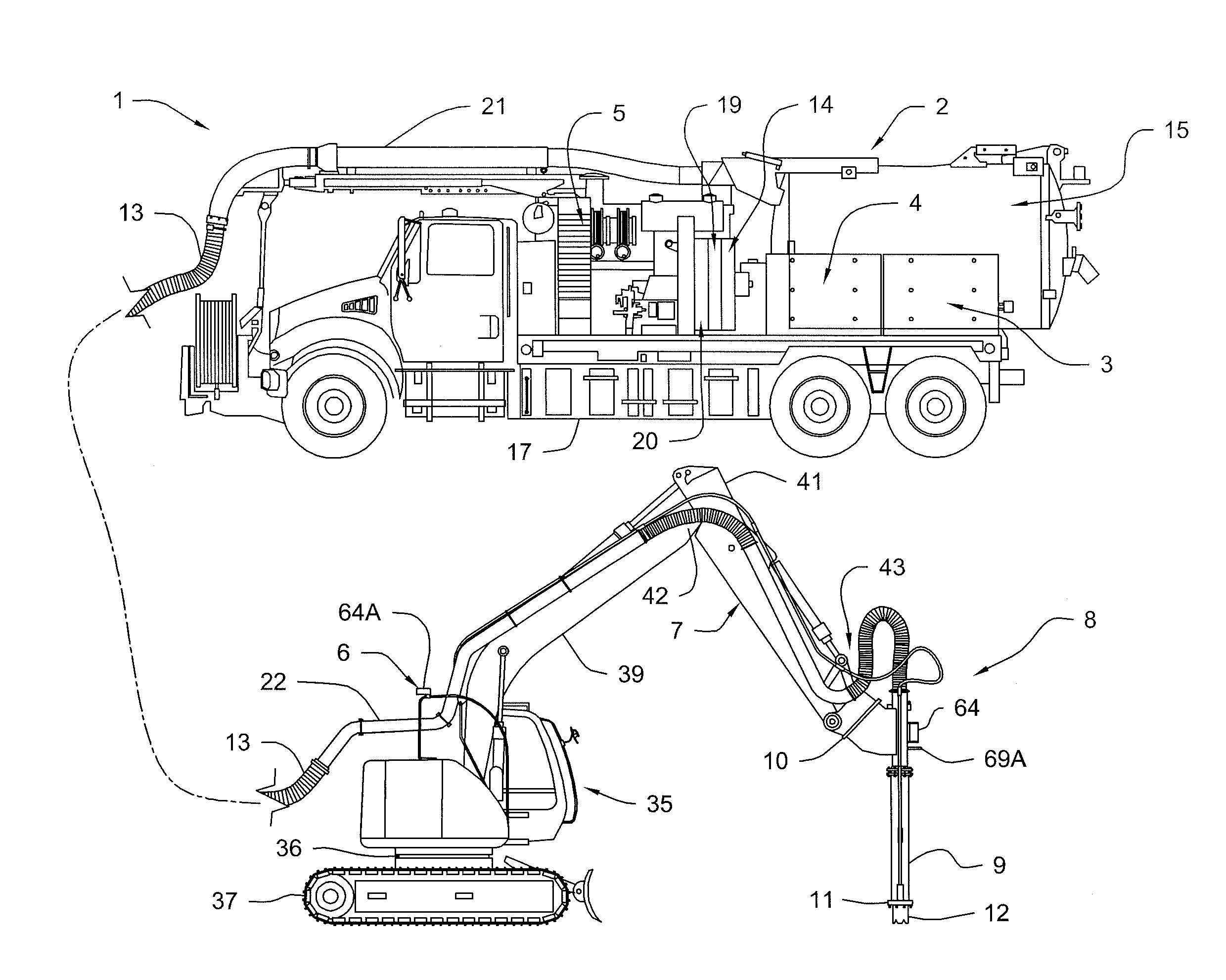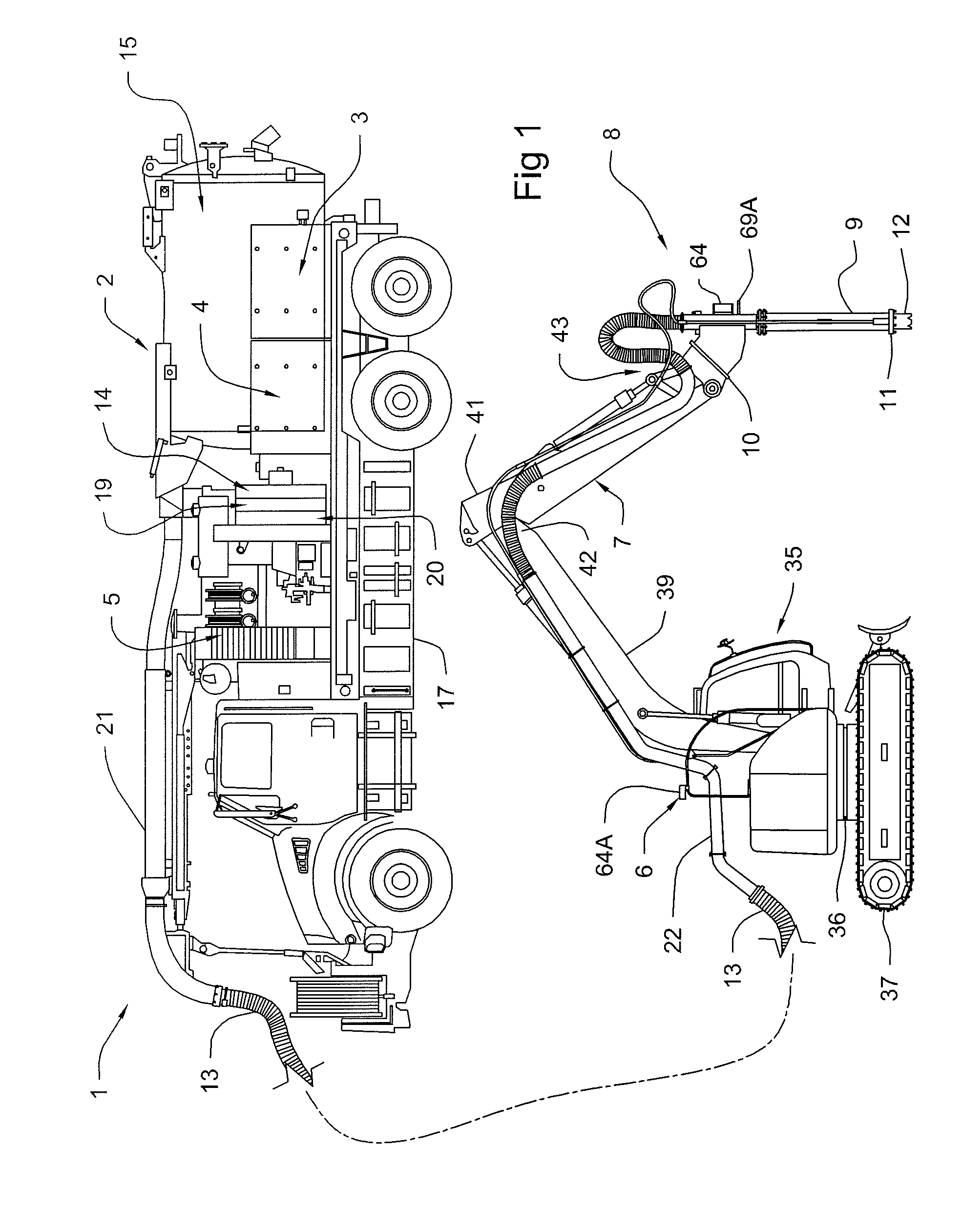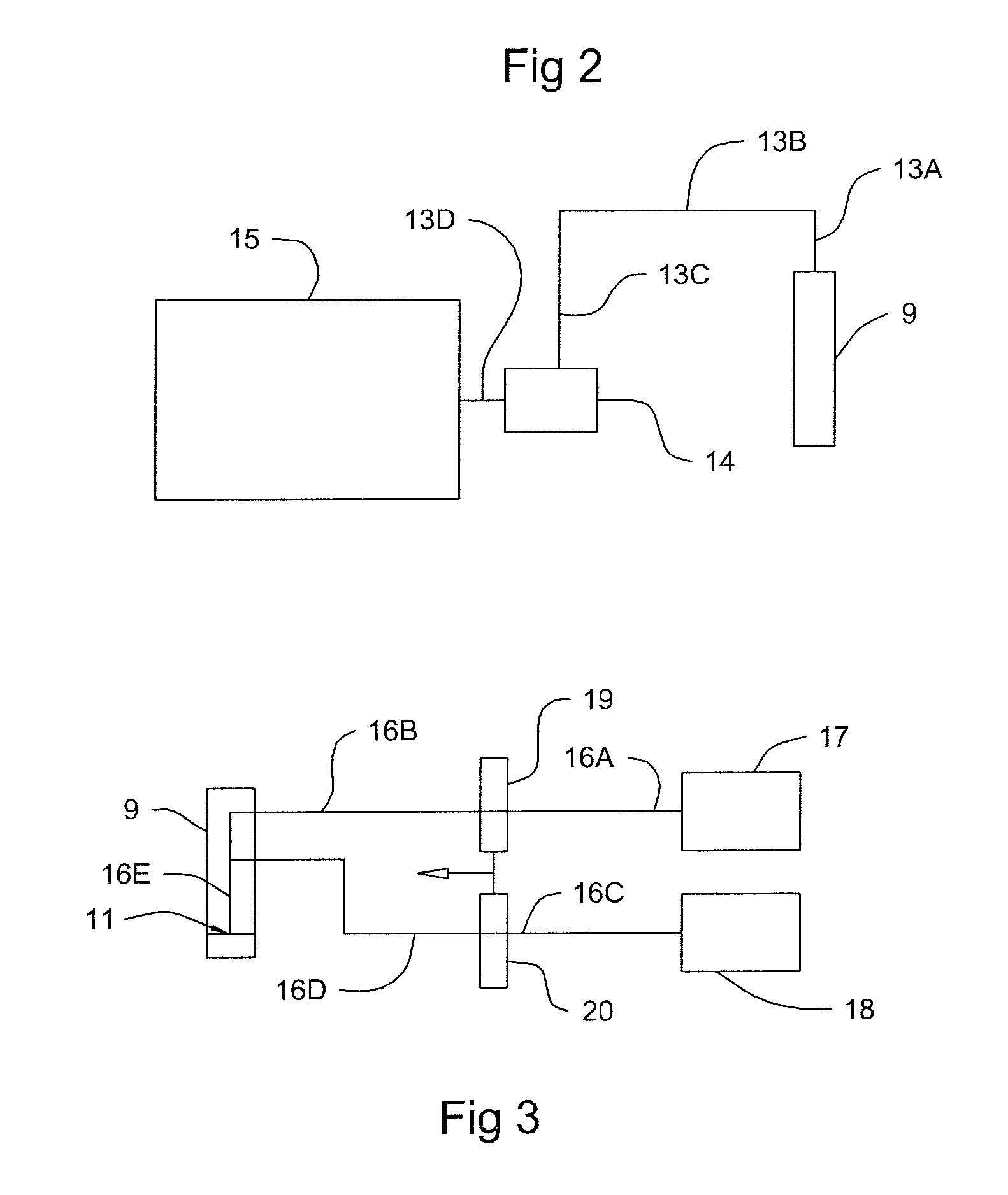Excavation system
a technology of excavators and sluices, applied in the field of excavators, can solve the problems of prior art devices not being able to efficiently make the desired shaped trench, prior art devices constructed to deliver other equipment or materials, and not being able to operate in all the various field conditions, etc., to achieve the effect of greater mobility and maneuverability
- Summary
- Abstract
- Description
- Claims
- Application Information
AI Technical Summary
Benefits of technology
Problems solved by technology
Method used
Image
Examples
Embodiment Construction
[0050]Without any intent to limit the scope of this invention, the preferred embodiments of the invention are described for an embodiment specifically adopted for use in industrial plant sites.
[0051]As indicated in FIG. 1 in one preferred embodiment of the invention the excavation system 1 comprises a first vehicle, such as a conventional vacuum truck 2, having mounted thereon a vacuum assembly 3, a high pressure fluid delivery assembly 4, one or more power sources 5 used to operate the vacuum assembly 3 and the high pressure fluid delivery assembly 4. The excavation system 1 also comprises a relatively small, maneuverable vehicle 6 having an extendible and articulating arm 7, such as a small backhoe. The excavation system 1 still further comprises an excavator assembly 8 having a rigid excavator tube 9 attachable to the extendible and articulating arm 7 of the backhoe 6 via a mounting adaptor 10. The excavator assembly 8 also includes a fluid jetting assembly 11 having nozzles 12 d...
PUM
 Login to View More
Login to View More Abstract
Description
Claims
Application Information
 Login to View More
Login to View More - R&D Engineer
- R&D Manager
- IP Professional
- Industry Leading Data Capabilities
- Powerful AI technology
- Patent DNA Extraction
Browse by: Latest US Patents, China's latest patents, Technical Efficacy Thesaurus, Application Domain, Technology Topic, Popular Technical Reports.
© 2024 PatSnap. All rights reserved.Legal|Privacy policy|Modern Slavery Act Transparency Statement|Sitemap|About US| Contact US: help@patsnap.com










